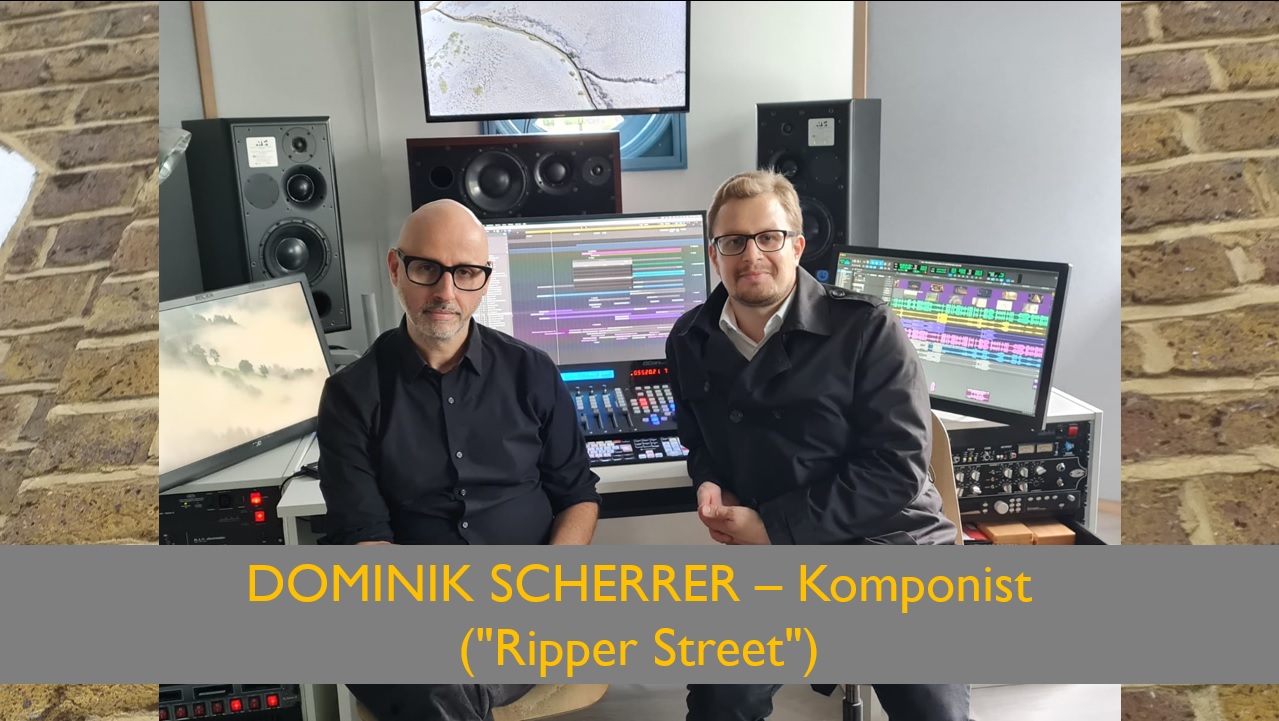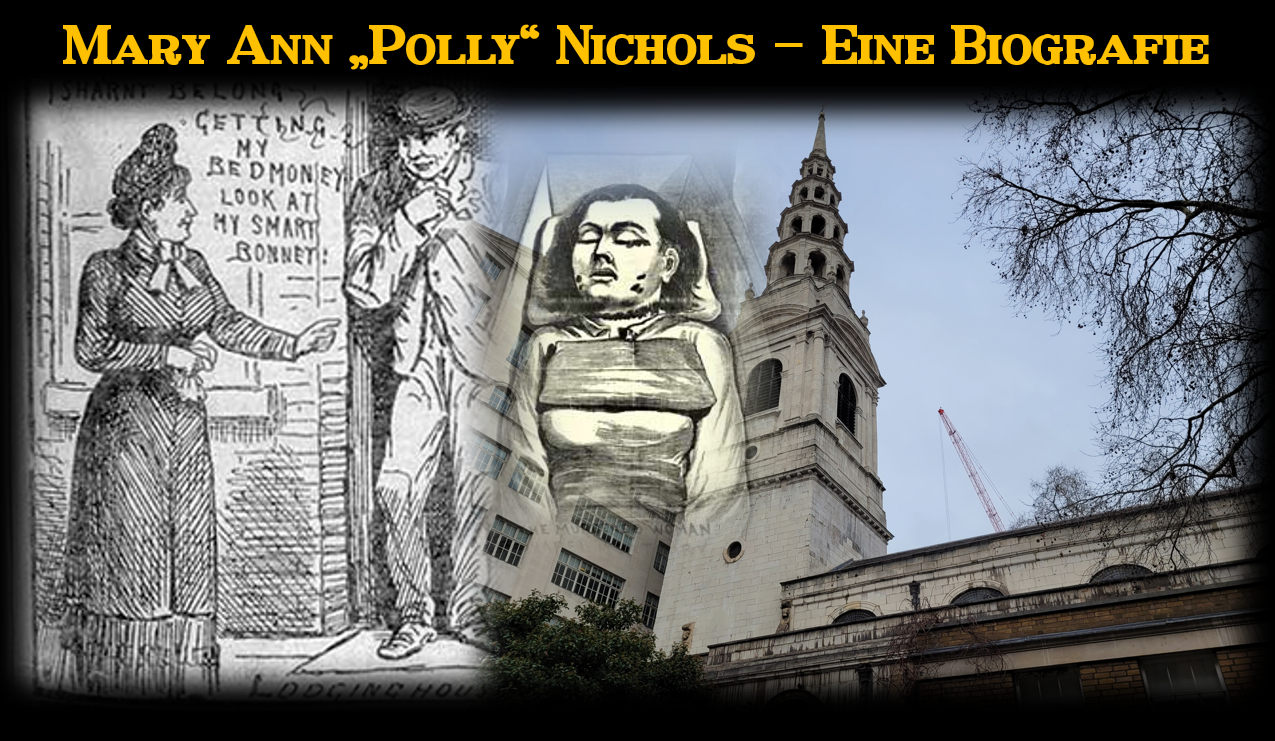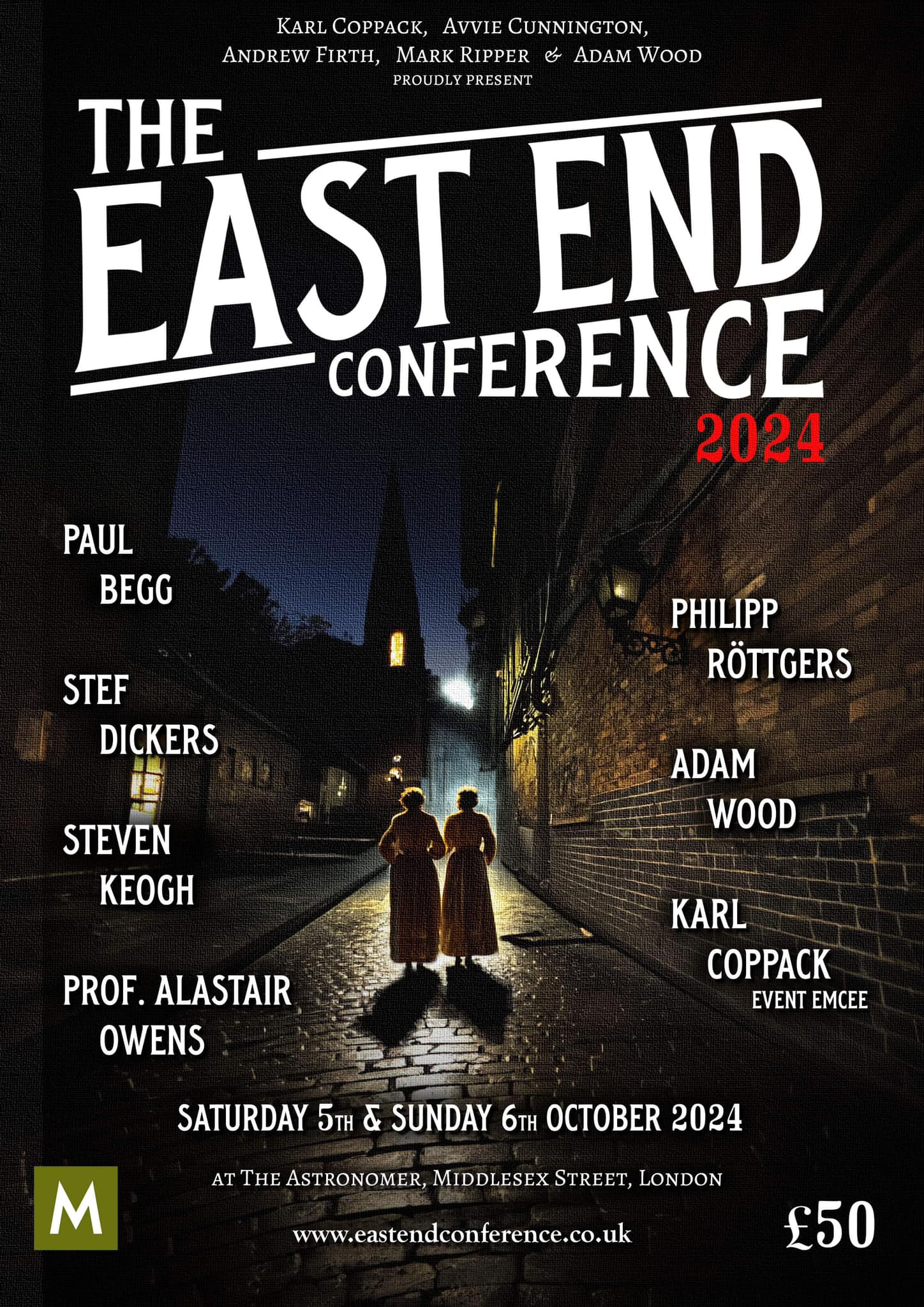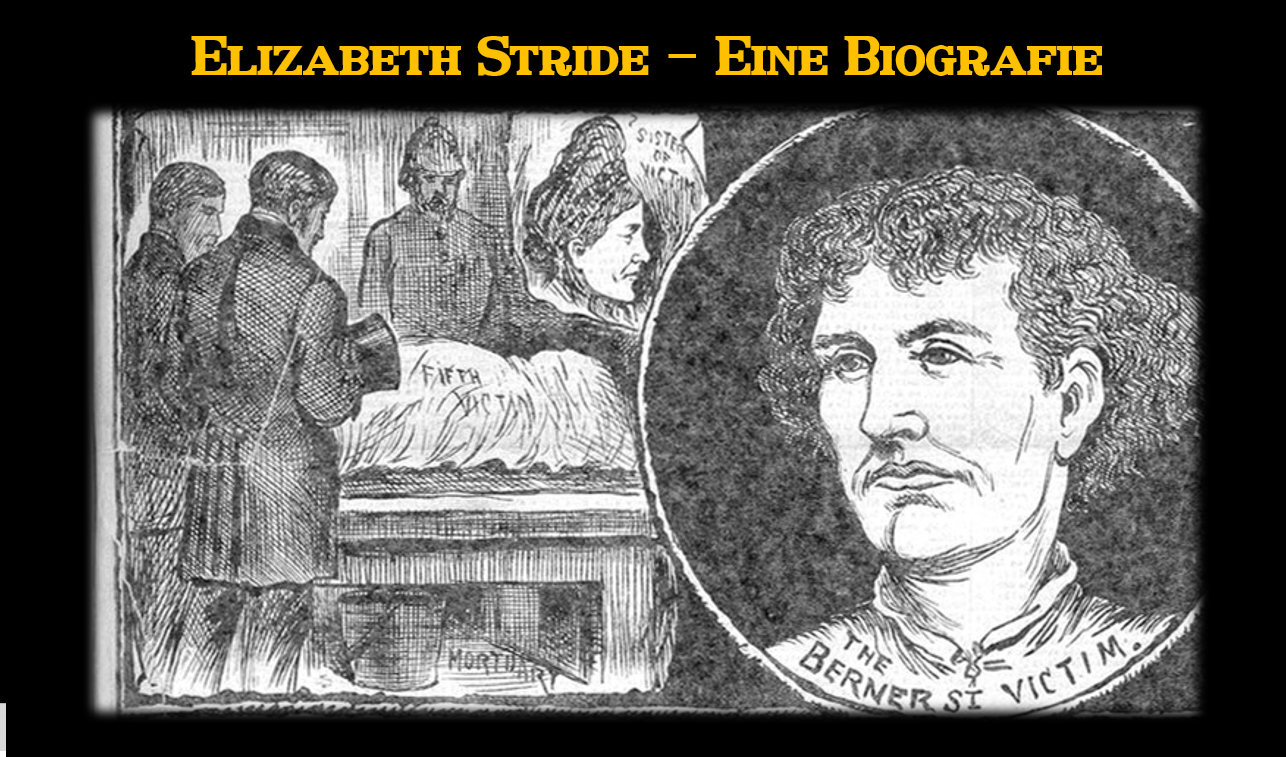Dominik Scherrer ist ein 1967 in Zürich geborener britischer Komponist, der viel für Film, Theater und Fernsehen geschrieben hat. Von ihm stammen die Soundtracks zu “Agatha Christie’s Marple”, “Ripper Street”, “Inspector George Gently”, “Primeval”, “The Missing”, “Requiem” und “The Serpent”.
Wir trafen Dominik Scherrer in seinem Crimson Noise Studio auf der Brick Lane, mitten im Gebiet von Jack the Ripper. Um die Ecke in der Hanbury Street wurde Annie Chapman, das zweite kanonische Opfer des Rippers, ermordet. Die Musik zu “Ripper Street” stammt also quasi “von” der “Ripper Street”.
Entdecken Sie das East End des Rippers auf unserem Self-Guided Jack the Ripper Walk (Deutsch)!
Scroll down for the English version of the interview.
YouTube
Spotify
Timestamps
00:00 Vorstellung
00:24 Dominik, kannst du uns ein wenig über Dein Studio erzählen und warum und wie Du in der Brick Lane gelandet bist?
02:04 Gleich um die Ecke ist die Hanbury Street, in der Annie Chapman, das zweite Opfer von Jack the Ripper, ermordet wurde. Ich persönlich finde es spannend, dass die Musik für “Ripper Street” quasi in der “Ripper Street” erschaffen wurde. Hat Dich die Gegend inspiriert, als Du den Soundtrack geschrieben hast?
06:24 Ein Teil der Musik erinnert an Italowestern-Soundtracks, war das beabsichtigt?
08:13 Ich habe auch ein Interview mit Schauspielerin Karen Egan geführt, die bei dem Song “Eight Little Whores” mitwirkte. War es schwierig, Music-Hall-Lieder zu schreiben?
09:28 Hast Du ein Lieblingsstück aus dem Soundtrack?
12:41 Erzähl uns doch ein wenig über Deine Karriere, wie und wann du angefangen hast, Musik zu komponieren!
16:29 Wie sieht ein typischer Tag im Leben von Dominik Scherrer aus?
17:50 Woran arbeitest du derzeit?
18:31 Wurdest Du bei “Ripper Street” auch von anderen Filmmusiken oder Serien, die im viktorianischen London spielen, beeinflusst?
20:15 Welche KomponistInnen beeinflussen Dich generell?
22:21 Dominik Scherrers Filmmusik für “Ripper Street” wurde mit dem prestigeträchtigen Ivor Novello Award für den besten Fernseh-Soundtrack ausgezeichnet. Herzlichen Glückwunsch!
Sonia Slany, die Soloviolinistin, die all die “kantigen” Dinge in “Ripper Street” spielte, ist leider im Januar 2021 gestorben.
Mein Buch “Jack the Ripper – Die Whitechapel-Morde 1888: Eine Chronologie”:
Interview with composer Dominik Scherrer – English Version
We paid a visit to Dominik Scherrer, the composer of the “Ripper Street” soundtrack. His recording studio Crimson Noise Ltd is located on Brick Lane in Spitalfields, just around the corner of where Annie Chapman, Jack the Ripper’s second victim was murdered. We met the man behind the music of “Ripper Street” on Ripper Street.
Dominik Scherrer is from Switzerland. He came to London around 35 years ago for university and never left. Dominik has known Brick Lane and the surrounding area for a long time and has seen it changing from the early days, when it was “proper East End” to the 1990s when artists came and settled there. His Crimson Noise Studio is part of the old Truman Brewery, once the biggest brewery in the country. The old brewery is a huge complex that used to house many musicians and artists like Dominik himself. Today there is a variety of businesses, but there are still many musicians around and the atmosphere is exciting. They do not brew beer here anymore, but they did during the time of the Jack the Ripper murders, as the high time for the Truman Brewery was the mid-19th century. Lately, Truman beer came back into existence.
The site in Hanbury Street, where Annie Chapman was murdered, is now also part of the brewery complex. Dominik’s studio up on the top floor was the brew master’s office. One evening he visited the composer there and told him a bit what life there was like in the 1970s and 1980s.
So how did he get to work on the TV show “Ripper Street“? Dominik knew one of the leading directors, Tom Shankland, whom he had worked with on other shows. Dominik found the Jack the Ripper connection and the whole setting of the show exciting and was invited to a telephone conference with the producers in L.A. and London. He convinced them to become the show’s composer when he told them that he was basically working ON Ripper Street.
Dominik wanted it to be a “soundtrack from the streets.”. No beautifully orchestrated score that sounded like Beethoven, but something to fit the rough and streetwise story. He also included folk elements, as he wanted it to be true to the people that lived in the East End in the late 19th century, among them many Irish people. The whole area is one of immigration. The first immigrants were the Huguenots, around the time of the Edict of Nantes, who went all over the world, also to Switzerland. Dominik himself is a descendent from the Huguenots.
After the Huguenots, Jewish people from Russia and Poland came to the East End, followed by the Bangladeshi in the 1970s and artists in the 1990s. Immigration on Brick Lane has been a 300-year-old story and while the Jewish lived there, many Irish people also arrived in the East End. Their music was also an influence for the score. Dominik wanted the whole immigration history in the soundtrack.
Some of the music also has a Wild West feeling, similar to the music of Italian Westerns. This was intended, as Dominik felt that the area was a bit like the Wild West back then but slowly changing with the beginning of modern policing when the Metropolitan Police used forensics for the first time. The Wild West atmosphere in the music came also from the instruments Dominik chose. For example, he used the banjo a lot, which was used quite often in the evening-entertainment-songs in the music halls in the late 19th century (mainly because the banjo was loud and good for the halls).
Every project is a challenge and one has to try new styles of music. For example, “Music Hall” is not a single style, it is part of many styles of music, even The Beatles and especially Paul McCartney has a music hall background through his father that you can hear in his songs.
Dominik’s favourite piece of the soundtrack is the main theme, which he has always liked, also because of the way it was created. He says that sometimes you manage to create a theme – all of a sudden, it’s there – but this one took quite a while. When the solo violinist was in his studio to record it, she had to laugh because on the music sheet it said “Version 13”. That was still not the final version. After they had recorded it, they got a call from Tom Shankland, who wanted some changes. Dominik and the violinist, Sonia Slany, jammed for five to ten minutes with her playing to his chords and the melody. They recorded it and that became the final version. Sonia Slany, the solo violinist who played all these “edgy” things on “Ripper Street”, sadly died in January of 2021.
Another song Dominik really likes is “The Toff”, which was sometimes used for the end credits, but was actually from a scene from the first episode. It’s very rhythmic and influenced by Eastern European rhythms, being in 7/8.
Dominik’s musical career started when he learned to play the piano and the German flute as a child. He got into synthesizers and with his first wage bought a Polymoog. With his first band, he we went to Hamburg for one troublesome year. He was always interested in film and when he was a teenager, he already made his own movies, mainly because he wanted to write music for them. He started with very elaborate projects, like film adaptations of Georg Büchner’s works. He wanted to keep working with this intersection of music and film and decided to study film at the film school in London. There, he composed a lot for his fellow students and kept doing this after film school. At first, he wrote music for short films, then feature films and art films, and then for TV shows. He continued studying music part time, to keep learning about harmonies and counterpoints. As the productions became bigger and more elaborate, he had to work with a string quartet and then an orchestra. His first really big TV programme was “Agatha Christie’s Marple”. The series was a big success and ran for nine years. Dominik recorded with an orchestra every four weeks. He worked on several projects at the same time, but when “Marple” stopped, “Ripper Street” began.
Dominik works in his studio supported by an assistant, but also from home, where he installed a similar studio because of COVID. On a typical work day, Dominik starts at around 7 a.m. with a cup of coffee and then works on compositions for six hours or more. In the afternoon he works on arrangements or makes telephone calls.
He cannot talk about his current project, which will come out next year and is produced by German TV programme ZDF together with BBC, HBO and Australian channels.
As an influence on “Ripper Street”, Dominik names the score of “The Village” (directed by M. Night Shyamalan) by James Newton Howard, as there is a lot of solo violin in there. He got a lot of his inspiration from the baroque epoch, because that was the first time that everything for the string instruments was written down very well and organized and the technique of double stops was invented. That was an important part for “Ripper Street”.
In general, he has been influenced by classical composers like Bach or Beethoven, and says that you don’t have to invent everything new. Film music is mostly about creating a certain sound for a film. He likes Hans Zimmer or James Newton Howard and especially Jóhann Jóhannsson, who for him was on another level. One of Dominik’s heroes is Mychael Danna.
Dominik Scherrer’s stunning and innovative music score for “Ripper Street” won the prestigious Ivor Novello Award for Best Television soundtrack. That was a great honour for him as it is the biggest prize for music compositions in the United Kingdom and at the same time, one of his heroes, Nick Cave also received an Ivor Novello award.
Thank you very much indeed, Dominik!
Discover the Ripper’s East End with our self-guided Jack the Ripper Walk!
TALKS BEYOND TIME AND PLACE – Mini Episodes
Philipp Röttgers ist Schriftsteller, Journalist und Musiker und auf der ständigen Suche nach dem Geist Londons. Diese Suche nach dem “spirit of Place” der Stadt hat ihn auf eine Reise jenseits von Zeit und Ort geführt. Auf seinem Weg hat er ein Buch, mehrere Artikel und Essays veröffentlicht, die Stadt allein und als Reiseleiter durchwandert, das Unternehmen “London beyond time and place” gegründet und sich mit Autoren, Musikern, Reiseleitern, Historikern, Kuratoren, Entertainern und Zeitreisenden unterhalten, die sich alle mit der Stadt verbunden fühlen und von ihr inspiriert werden.
Daraus ist eine erfolgreiche Interviewserie mit dem Titel “Talks beyond time and place” entstanden, in der der Geist Londons aus verschiedenen Perspektiven betrachtet wird, um seiner (oder ihrer?) ganzen Vielfalt nahe zu kommen. Philipp fühlt sich mit London und der Energie, die von diesem Ort ausgeht, tief verbunden. Deshalb ist er fasziniert davon, Menschen zu treffen, die ihm ihre persönliche “Londoner Geschichte” erzählen.
Philipp Röttgers is a writer, journalist and musician and in constant search for London’s spirit. This search for the city’s “spirit of place” has led him on a journey beyond time and place. Along his way he has published a book, several articles and essays, walked the city alone and as a tour guide, founded the company “London beyond time and place” and conversed with authors, musicians, tour guides, historians, curators, entertainers and time travellers who all feel a deep connection to the city and are inspired by it.
This has turned into a successful series of interviews called “Talks beyond time and place”, in which London’s spirit is looked upon from different perspectives which allow you to feel the spirit of London in all its variety. Philipp feels deeply connected to London and the power emanating from this place. Therefore, he is fascinated by meeting people to tell him their personal “London story”.





